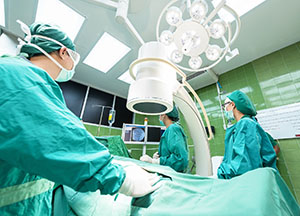Faculty of Engineering Mansoura University obtains funding for 4 projects in energy excellence funded by USAID
- Hits: 427

In continuation of the excellence and leadership of Mansoura University, teams of the Faculty of Engineering in the joint energy excellence project between the universities of Arizona, Mansoura, Ain Shams and Aswan, funded by USAID, received support for four projects and a project in partnership with Ain Shams University.
The first project consists of an "independent and integrated system for the simultaneous production of electricity and fresh water in Remote areas" by researcher Dr. Mohamed Ragab, Department of Mechanical Power Engineering, Mansoura Engineering.
Funding value: $160,000.
The project aims to develop an integrated device consisting of low concentration photovoltaic cells integrated with a thermal desalination system to provide electricity and fresh water to isolated areas. One of the major innovations is to replace the back of the low concentration photovoltaic panel with a high thermal conductivity feed duct which will lead to replacement of this layer creating a new unit that is called direct thermal contact which will enable the excess heat generated in the LCPV to heat the water fed to the thermal desalination process to produce drinking water.
The second project deals with “improving the efficiency of photovoltaic cells by cooling solar panels with atmospheric water-absorbing hydrogen” by the researcher Dr. Mohamed Sameh, Department of Mechanical Power Engineering, Mansoura Engineering
Funded value: $102,000.
The proposed system uses a newly developed functional hydrogel to absorb water vapor from the ambient temperature during the night. Then using the absorbed water to dissipate the excess heat from the back solar panel causing the stored water to evaporate during the day, where the hydrogel is made and its properties are studied. After that, a digital model will be developed and validated to simulate the entire process. The model will then be used in a parametric study to determine the best operating and design conditions for the system. Then, a testing platform will be created with the help of the industrial partner based on the numerical results. The tester will be used to verify system performance under real-world operating conditions.
The third project is about “ A new photovoltaic water pumping system based on variable magnetic impedance drivers and supercapacitors”. By Prof. Mohamed Rizk - Department of Electrical Engineering - Mansoura Engineering
Funding value: $54,800.
This proposal aims to develop an efficient and cost-effective water pumping system to help overcome the water shortage problems in Egypt. The main objectives of this project are: developing a cost-effective water pumping system, reducing the economic burden on farmers and reducing the burden on the electricity grid by using renewable solar energy, and reducing the annual cost of electricity consumption for sectors of the Egyptian society. Reducing dependence on rivers as a main source of water by using available water resources such as groundwater or sea water after desalination. Helping to increase the agricultural area in Egypt by cultivating the desert using groundwater. Reducing Egypt's carbon footprint, supporting Egypt's energy roadmap 2035, improving the Egyptian economy.
The fourth project is” how to develop nanofluids to improve the efficiency of household refrigerators using artificial intelligence technologies”, by Prof. Mohamed Mahmoud Awad - Department of Mechanical Power Engineering - Mansoura Engineering
Funding value: $51,200.
This project aims to reduce the energy consumption of household refrigerators by rates ranging from 20% to 25%, as the project will address the use of nano/hybrid lubricants to improve the performance of household refrigerators using artificial intelligence models, which will reduce the annual energy consumption in Egypt by 300 million kWh every year. With the help of artificial intelligence (AI) technologies The best combination of nanoparticles and lubricants can be selected and then validated in the laboratory. This project will begin with an evaluation of existing AI models and select the most appropriate ones to find the best nano lubricant formulations, then develop and train an AI model using available data from previously published studies, experiment with different nano lubricant formulations to achieve the best performance and finally validation of model results through laboratory measurements on home refrigerators.
The Fifth project entitled “ Improving renewable energy production from waste and sludge co-digestion based on bioeconomic prospects”, by Assoc. Prof. Mohamed Ibrahim Gar Al-Alam - Department of Public Works Engineering - Mansoura Engineering
Funding value: $142,476 jointly between Ain Shams University and Mansoura University.
The project aims to develop a joint biological treatment system (anaerobic digestion) for both sewage sludge and agricultural waste, in the presence of a low-voltage electric cell and an ion exchange membrane that works to extract hydrogen gas, which leads to an intense and pure production of hydrogen that can be used as a source of clean energy. Disposal of agricultural waste with low biodegradability, which used to be disposed of by open burning and resulted in serious environmental and health problems. Moreover, the anaerobic digestion residues can be used as a source of organic fertilizers, which represents another economic and environmental advantage.







